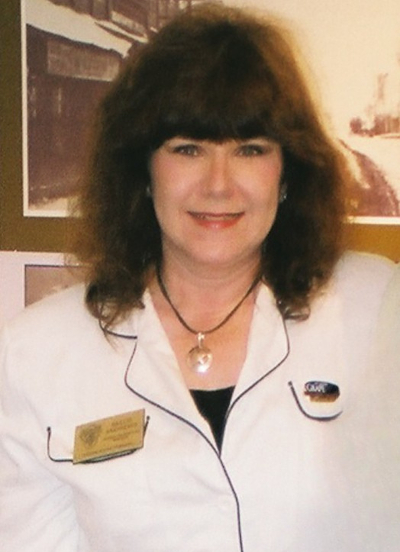
In September 2021, the City of Grapevine dedicated the Peace Circle, a work of public art on its Main Street, commemorating a meeting in August 1843 that included Republic of Texas President Sam Houston and the leaders of ten American Indian nations. Sallie Andrews will share the history of the gathering and the history of the public art project that touches millions of visitors in Grapevine each year.
Meet Sallie Cotter Andrews
Sallie Andrews is a resident of Decatur, Texas and a native of Tulsa, Oklahoma who has lived in Texas since 1977. She and her husband Rick moved to Decatur 20 years ago, own the Lazy Horse Ranch, and have one son and two grandsons.
Sallie was hired by the City of Grapevine in 1991 and now works part time for the City in Historic Preservation as Historic Preservation Manager. Among her many duties in historic preservation, she was a researcher and coordinator on the "Peace Circle" public art project. Peace Circle was installed at Peace Plaza on the corner of Main Street and Dallas Road and dedicated during the 38th Annual GrapeFest® in September 2021. She is considered by many to be one of Grapevine's historians and is a Lifetime Member of the Grapevine Historical Society. Sallie developed the Settlement to City Museum, the Donald Schoolhouse Museum and the Grapevine Cotton Ginners Museum, and served on the team that helped reconfigure the Grapevine Historical Museum in 2014. She has written numerous historical markers for Grapevine and is a regular contributor to the newsletters for the Grapevine Historical Society and the Wise County Historical Society. She is the author of a children's book entitled Grapevine Tales Through Time and has served on the editing teams for three Grapevine books.
Sallie has received many honors for her work, including the National Society Daughters of the American Revolution (DAR) Historic Preservation Medal and the Susie Pritchett Lifetime Achievement Award in Preservation from the Tarrant County Historical Commission. She is a board member of the Texas Trail of Fame, Inc., in Fort Worth, where she has served for three years. Sallie served on the Historical and Cultural Committee of the Wyandotte Nation of Oklahoma for 25 years and is a seated faithkeeper in the longhouse, which is a lifetime commitment.